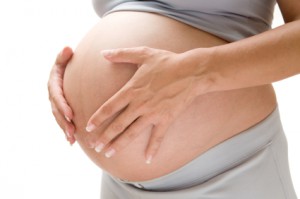Breast cancer is the most common cancer in the United Kin![]() gdom and constitutes the leading cause of cancer-related death in women worldwide. One in eight women can expect to develop breast cancer at some point in their lifetime.
gdom and constitutes the leading cause of cancer-related death in women worldwide. One in eight women can expect to develop breast cancer at some point in their lifetime.
Progress has been made in early detection and treatment of breast cancer but little is understood about how women can reduce their risk of developing the disease. Child-bearing is one factor identified to reduce this risk. If a full-term pregnancy occurs before the age of 20, the risk of developing breast cancer is halved. Yet the mechanism through which this works remains unexplained.
 A new publication in Breast Cancer Research uses a novel approach to answer this question. The authors, including Editorial Board Member Professor Mohamed Bentires-Alj, use transcriptome analysis, immunohistochemistry, colony formation assay, and mammary fat pad transplantation to look at the effect of early parity (pregnancy) in mice on distinct subpopulations of mammary epithelial cells. This differs from past studies, which have instead looked at the mammary gland as a whole.
A new publication in Breast Cancer Research uses a novel approach to answer this question. The authors, including Editorial Board Member Professor Mohamed Bentires-Alj, use transcriptome analysis, immunohistochemistry, colony formation assay, and mammary fat pad transplantation to look at the effect of early parity (pregnancy) in mice on distinct subpopulations of mammary epithelial cells. This differs from past studies, which have instead looked at the mammary gland as a whole.
The authors found that parous mice had an upregulation of differentiation genes, a decrease in the Wnt/Notch signalling ratio (a potentially carcinogenic pathway which controls cell proliferation and differentiation), and a reduction of proliferation specifically in basal stem/progenitor cells.
These results support the theory that early pregnancy changes gene expression in specific mammary gland cells to promote differentiation, reduce proliferation and ultimately protect against breast cancer. This exciting new study opens the door to future research into inhibition of the Wnt pathway and the possibility of drugs which may be able to mimic parity-induced protection against breast cancer.
Eleanor Tyler
Editorial Assistant – Breast Cancer Research
Comments